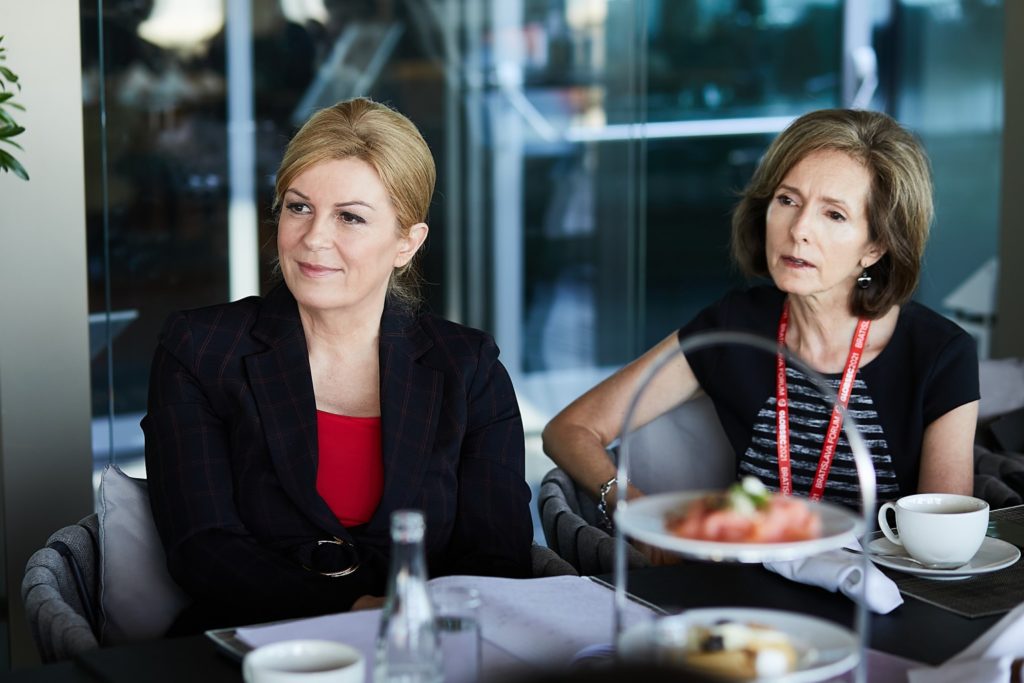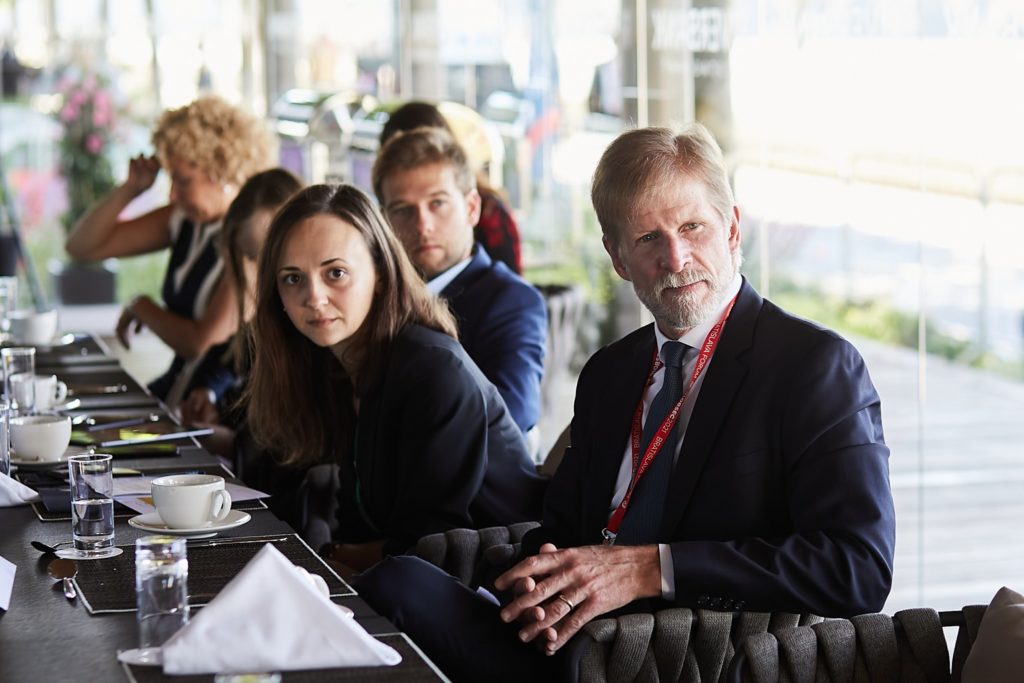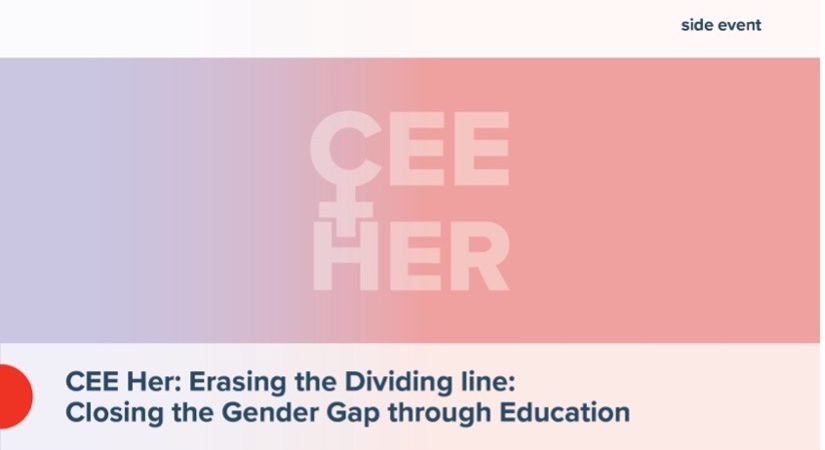GLOBSEC Bratislava Forum has, once again, hosted CEE Her Breakfast on the side-lines of the conference on 16 June 2021. GLOBSEC, as an organisation aware of how gender imbalance affects the quality of policy outcomes, hopes to be able to shape the societal narrative on the topic and support the advancement of women in the field of (digital) education.
The current societal challenges highlight the need to utilise the full potential of men and women alike in order to attain long-term, sustainable goals in our digitalised and interconnected world. Yet, women are often absent from contributing to the digital economy. Women, in general, suffer from stereotypical mindsets about gendered workplaces, reflect a lower degree of confidence when applying for jobs and using technology, and are ill-equipped by the education systems which systematically curtail their access to opportunities. The structural socio-economic factors make the digital gender gap even more pronounced and the female underrepresentation in the workforce often results in talent shortages and hinders societal progress. If governments, businesses and organisations increased the pace of bridging the digital gender divide and leveraged the equalising role of gender-responsive education, this would result in a major leap for the parity between men and women. The question is, what does it take to get there?
From the offset, Krista Mulenok, Secretary-General of the Estonian Atlantic Treaty Association, emphasised the role of technology in societal progress and if developed mainly by men, large groups of women are overlooked. The rates of female IT students are consistently low across European countries with Estonia leading with 38%. Additionally, training programs designed to narrow the gender gap in digital education tend to focus on male trainees. To broaden the opportunities for young girls and boys alike, schools should offer more extra curriculum activities and encourage students to participate in an inclusive, gender-neutral manner.
Consequently, Jeff Bullwinkel, Associate General Counsel and Director of Corporate at Microsoft Europe set the tone by stating that we are currently living in an era of AI. It is important to focus on what can be done to recruit the very best talents while reflecting sufficient gender balance in the company, and to support skills development among women in the tech and IT that will lead to the creation of role models in the field.
In this connection, Daniela Schwarzer, Executive Director for Europe and Eurasia at Open Society Foundations, made a link between women’s traditional responsibilities, and that society expects women to have, and professional development. In all, the presence of women in fields dominated by male needs to be explicitly addressed. However, Pavel Mik, Country Managing Director Slovakia & Manager of Robotics in Eastern Europe at ABB, raised an observation that the concept of a gender balance in digital education is so fragile that a simple act of using gender quotas may push women through the selection procedures just because of their gender. This said, outputs created by only male producers will not be suitable for female consumers.
Finally, Kolinda Grabar-Kitarović, former president of Croatia, said that women face all kinds of stereotypes especially in leading positions because, in some countries, society is unprepared to see them being occupied by women. After all, girls excel in social studies and languages ahead of boys at an early age but are lacking in digital literacy. It has been worsened with the COVID-19 pandemic, especially in families with lower economic backgrounds.
The event was led by Zuzana Pisoň, Technology Stream Lead at GLOBSEC Policy Institute.



